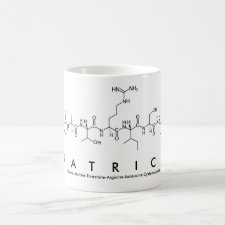
Authors: Kellens E, Bové H, Conradi M, D'Olieslaeger L, Wagner P, Landfester K, Junkers T, Ethirajan A
Article Title: Improved Molecular Imprinting Based on Colloidal Particles Made from Miniemulsion: A Case Study on Testosterone and Its Structural Analogues.
Publication date: 2016
Journal: Macromolecules
Volume: 49
Issue: (7)
Page numbers: 2559-2567.
DOI: 10.1021/acs.macromol.6b00130
Abstract: Molecularly imprinted polymers (MIPs) in the micron and submicron scale based on the bifunctional cross-linker N,O-bismethacryloylethanolamine (NOBE) have been synthesized using bulk and miniemulsion polymerization, respectively. MIPs with distinct selectivity for the template testosterone were obtained. Colloidal MIP particles made using the miniemulsion technique have significant advantages compared to bulk MIP counterparts owing to their small size, homogeneity, and increased surface, as is demonstrated by optical batch rebinding studies using a nonimprinted polymer (NIP) as a negative control. Affinity and selectivity studies were also performed with the miniemulsion colloidal MIPs. These MIPs display largely increased imprint factors (6.8 vs 2.2) when compared to their bulk MIP counterparts. Further, selectivity studies by using analogue steroids show that colloidal MIPs also display a higher selectivity. In summary, miniemulsion MIPs show much better performance with respect to molecular recognition in aqueous solution, while providing at the same time the possibility for a water-based MIP synthesis
Template and target information: testosterone



Join the Society for Molecular Imprinting

New items RSS feed
Sign-up for e-mail updates:
Choose between receiving an occasional newsletter or more frequent e-mail alerts.
Click here to go to the sign-up page.
Is your name elemental or peptidic? Enter your name and find out by clicking either of the buttons below!
Other products you may like:
 MIPdatabase
MIPdatabase









